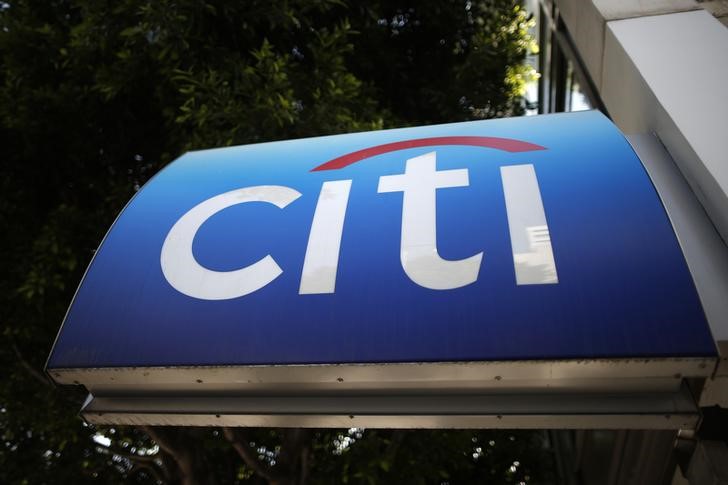[ad_1]
© Reuters. FILE PHOTO: The Citigroup Inc (Citi) in Toronto, Ontario, Canada October 19, 2017. REUTERS/Chris Helgren/File Photo
NEW YORK (Reuters) -Leaders from U.S. banking giants on Thursday said strict capital requirements, which were bolstered after the 2008 financial crisis, could restrain economic activity.
Higher capital requirements for big banks may curb lending and amplify a potential recession, Citigroup (NYSE:) Chairman John Dugan told attendees at the Institute of International Finance conference in Washington.
“If you keep going and raise capital because of fear of things getting worse beyond what the risks are, you run the risk that banks will not be able to lend as much as they otherwise would to support the economy,” Dugan said.
Restraining banks from lending during a slowdown could “amplify the recessionary effect,” he said.
The U.S. Federal Reserve is conducting a “holistic” review of bank capital requirements and might impose tougher rules on large regional lenders, its new regulatory chief said last month.
JPMorgan Chase (NYSE:) Chief Executive Officer Jamie Dimon and Bank of America (NYSE:) CEO Brian Moynihan have both expressed similar concerns.
“It constrains our ability to make markets precisely at the point in time that the world needs it the most,” Dimon said earlier Thursday at the IIF event.
“JPMorgan is sitting there with $1.2 trillion of cash, unable to finance $50 billion a year of your sovereign debt.”
Moynihan said on Wednesday that requiring the bank to increase its capital by 100 basis points would take $160 billion of lending “off the table.”
But the biggest banks, which face the strictest set of capital requirements and have lobbied for years for relief, face an uphill climb with regulators.
Michael Barr, the Federal Reserve’s vice chair for supervision, suggested in September if anything, the central bank’s review could ratchet up requirements.
“As we make judgments … it’s with an overall sense of, ‘Is capital in the system strong enough?’ It’s strong. I think the question is, is it strong enough?” he said at an event hosted by the Brookings Institution.
[ad_2]
Image and article originally from www.investing.com. Read the original article here.

